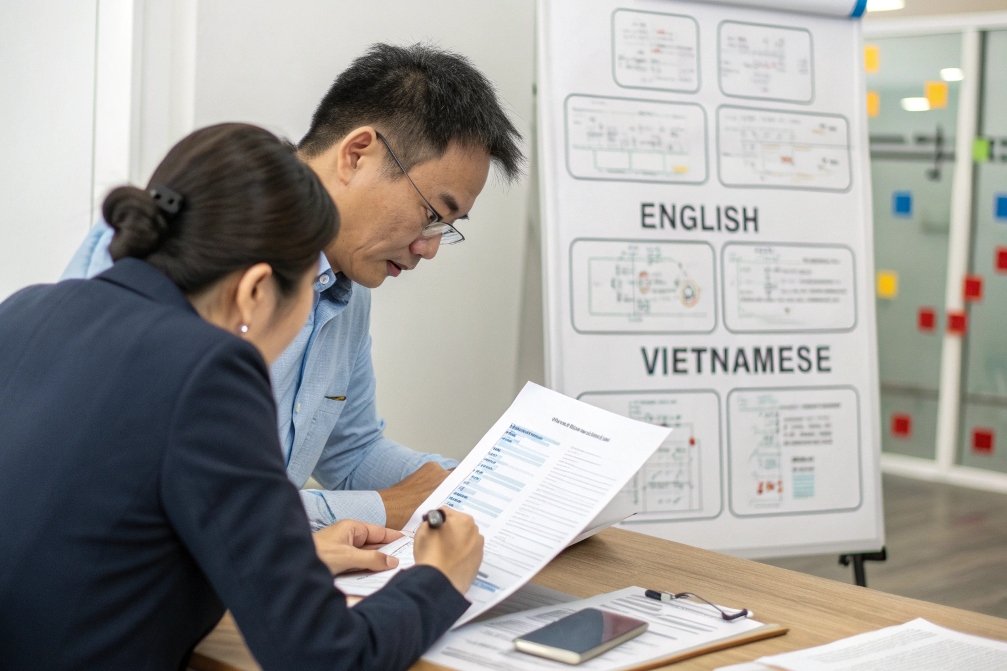
When working with Vietnamese business partners, I’ve found that success hinges not only on the business deal itself but also on how well you train, communicate, and maintain relationships. Understanding their business culture and respecting local norms are key to long-term partnerships. Effective training programs, clear communication strategies1, and relationship-building tactics can go a long way in ensuring a mutually beneficial collaboration.
Training, communication, and relationship maintenance with Vietnamese partners require a mix of patience, cultural understanding, and long-term commitment.
In this article, we’ll explore how to successfully train your Vietnamese partners, communicate effectively with them, and maintain strong, lasting relationships.
What Are the Best Practices for Training Vietnamese Business Partners?
Training is one of the most critical elements when working with Vietnamese partners. As with any partnership, your success is often determined by how well both sides understand each other’s expectations and processes.
Effective training in Vietnam2 involves recognizing the local learning culture, providing clear guidance, and offering continuous support.

Best Practices for Training
| Best Practice | Description |
|---|---|
| Understand Local Learning Styles | Vietnamese workers often prefer structured learning with clear, step-by-step instructions. Offering practical examples helps reinforce concepts. |
| Provide Clear Documentation | Offering written materials in both English and Vietnamese ensures clarity and reduces the risk of misunderstandings. |
| Use Interactive Training | Encouraging engagement and participation in training sessions leads to better retention and practical application. |
| Offer Ongoing Support | Providing continual support after the training session shows your commitment to the partnership and ensures that the lessons are implemented effectively. |
I’ve learned that training in Vietnam often benefits from a more hands-on, guided approach. Regular follow-ups and on-the-job coaching can ensure that the training sticks and remains practical. Moreover, understanding the pace at which your Vietnamese partners learn is important for setting realistic timelines.
How Can You Effectively Communicate with Vietnamese Partners?
Clear and effective communication is vital to any partnership. With Vietnamese business partners, communication goes beyond just language; cultural nuances play a significant role.
Effective communication with Vietnamese partners means being patient, avoiding direct confrontation, and taking the time to build a rapport.

Tips for Effective Communication
| Communication Tip | Explanation |
|---|---|
| Be Polite and Respectful | Showing respect is central to Vietnamese culture. Always greet your partners with politeness and formal titles. |
| Avoid Direct Confrontation | Vietnamese people prefer indirect communication. Disagreeing directly or openly criticizing can damage relationships. |
| Use Clear and Simple Language | While many Vietnamese partners speak English, keeping the language clear and simple helps avoid misunderstandings. |
| Check for Understanding | Regularly confirm that your message has been understood, particularly when discussing important details or expectations. |
In my experience, communication with Vietnamese partners requires a bit of patience and indirectness. It’s important to read between the lines, as they may not always express disagreement openly. Regular feedback and asking clarifying questions can help ensure mutual understanding.
What Strategies Help Maintain Strong Relationships with Vietnamese Partners?
Building and maintaining strong relationships with Vietnamese business partners isn’t a one-time task. It requires consistent effort, trust-building, and attention to detail.
Maintaining relationships with Vietnamese partners means focusing on long-term mutual benefits, understanding their needs, and showing commitment to the partnership.

Key Strategies for Relationship Maintenance
| Strategy | Description |
|---|---|
| Frequent Visits | Regular visits or business trips show your commitment to the partnership and strengthen personal relationships. |
| Celebrating Milestones | Acknowledging successes, anniversaries, or milestones in the partnership shows that you value the relationship. |
| Stay Flexible and Patient | Being open to changes and adjusting expectations over time is essential for maintaining long-term relationships. |
| Offer Mutual Benefits | Both parties should feel that the relationship is beneficial. Always seek ways to give back or create win-win situations. |
In my experience, maintaining relationships in Vietnam requires regular communication and genuine interest in your partner’s success. It’s not just about business deals—it’s about building a partnership based on mutual trust and respect. Making the effort to celebrate successes, even small ones, shows that you value the long-term relationship.
Conclusion
Training, communication, and relationship maintenance are critical factors in ensuring success when working with Vietnamese business partners. By understanding local learning styles, communicating effectively with respect and patience, and building long-term relationships, you can foster a strong and sustainable partnership. In my experience, these strategies have been key in forming lasting, fruitful collaborations in Vietnam.

